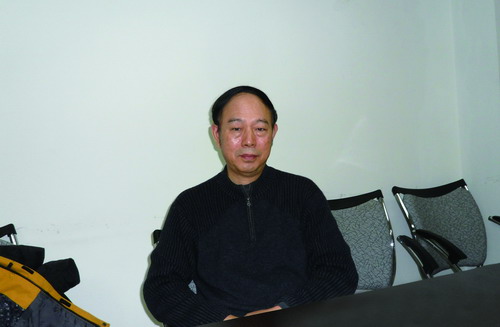 |
| Liu Chuntian, the Dean of the IP School of Renmin University |
On November 26, 2009, Renmin University of China formally announced the establishment of the Intellectual Property School. As the founding Dean of the IP School, Professor Liu Chuntian also came to the forefront and attracted much attention from the media.
Looking over Liu Chuntian’s CV, we will find that his career is very “single” and can be summed up in a few words: He enrolled in Renmin University of China in 1978, followed Professor Tong Rou in his graduate courses in civil law and then kept teaching for more than 20 years. What he has done can be simply summarized in two ways: one is teaching and researching in intellectual property law and the other is in promoting the development of China’s IP cause as an expert. However, if we look into his life, we also find a lot of hardship.
Promoter for intellectual property development
Teaching is a lifetime career for Liu Chuntian. Many of his students have become well-known lawyers or business elites. Apart from teaching, Liu has also witnessed and participated in the development of intellectual property in China, particularly in the formulation of many Chinese intellectual property laws. When it comes to the past, Professor Liu Chuntian became very excited and told many stories to the reporter.
On December 24, 1989, the Eleventh Session of the Seventh NPC Standing Committee began to consider the Copyright Law. Since some legal provisions were too controversial, the eleventh meeting did not adopt this law. Then the draft was considered in the 12th, 14th and 15th sessions. During that period, the draft was discussed and amended repeatedly. Finally, the draft law on copyright was passed by the Fifteenth Meeting of the National People’s Congress on September 7, 1990.
In the drafting and consideration, the Chinese title of copyright law was originally called Banquan, the literal translation of “copyright,” and later it was changed to Zhuzuoquan with the focus on an author’s rights, but literally translated as the “right in a work.” Behind this change, there was a tortuous process.
Professor Liu Chuntian recalled that, there were two points of view with regards to the name of this law: some people advocated the use of Banquan while others supported Zhuzuoquan and the two groups formed clear stands. They also launched a fierce long-running debate and published many articles to illustrate their point of view. Professor Liu Chuntian was in the group advocating Zhuzuoquan, while another IP scholar, a previous Researcher in the Law Institute of the Chinese Academy of Social Sciences Zheng Chengsi, belonged to the other group.
“We two kept very good relations and were quite familiar friends, but our viewpoints were rather different. In discussing the copyright law, Zheng and I were quite confrontational. I wrote an article on Guangming Daily to explain why this law should be called as Zhuzuoquan while Zheng published on the Legal Daily, saying that Banquan should be adopted."
Professor Liu Chuntian explained that Banquan is the literal translation of “Copyright” in English. Since many people obtained their knowledge and understanding of copyright from British or American materials, they firmly support the use of Banquan. They believed that Banquan was an international term, such as the Banquan used in “Universal Copyright Convention”.
“I didn’t think Banquan is proper. Banquan may lead to a one-sided understanding of the publisher’s right, while Zhuzuoquan has no such possibility of such a misunderstanding. Furthermore, from the Qing Dynasty to the Republic of China, there have been three laws of Zhuzuoquan in Chinese history. The Taiwan region now also implements the law of Zhuzuoquan, so that this term is conducive to communications across the Taiwan Strait.”

